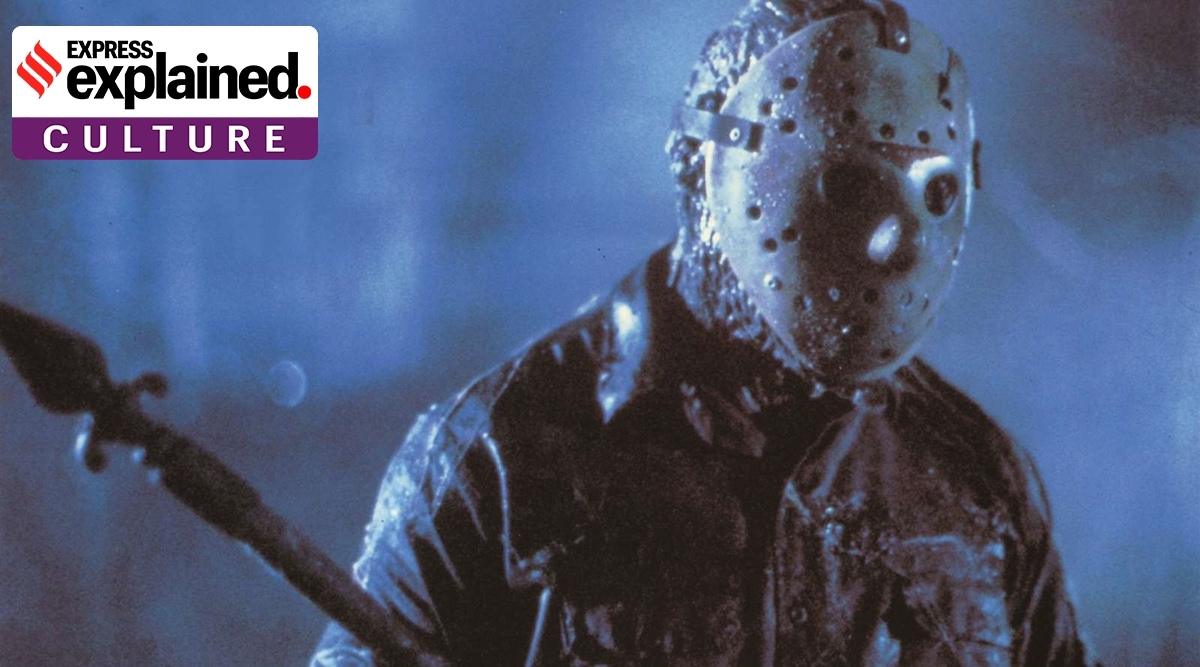There are very few dates or combinations thereof, which have featured in Western culture as prominently as “Friday, the 13th”. The idea comes up whenever any month’s 13th day falls on a Friday — such as today, January 13, 2023.
Friday, the 13th is often mentioned to create a sense of spookiness or fear or to suggest someone be cautious, because “something bad” could happen. The American entertainment industry has capitalised on the myth, with horror movies strategically being released on such dates. In fact, a very large number of films have “Friday the 13th” in their titles.
 Also Read | Lisa Marie Presley: Daughter of a ‘King’, married to another
Also Read | Lisa Marie Presley: Daughter of a ‘King’, married to another
However, the day itself is not exactly rare. In 2020, there were two Friday, the 13th months — March and November. There was a Friday, the 13th each in 2021 and 2022 as well. The previous years have also had such days at least once a year, sometimes thrice.
So why is a random day, which occurs often enough, believed to bring bad luck?
The myths around Friday, the 13th
Multiple sources point to how the two concepts, of the date 13th and of Friday, have separately been linked to bad omens, based on certain cultural beliefs in many Western countries.
Thirteen is often seen as unlucky because 12 is considered complete in itself: there are 12 Greek Gods, 12 signs of the Zodiac, 12 months in a year, and so on. Many airlines do not have a row 13, hotels don’t have a room numbered 13, the number 13 is missing from addresses in some cities and countries, and many buildings, both private and public, including in India, don’t have a 13th floor.
As for the superstition around Friday, a popular theory locates its origins in Norse mythology (relating to Scandinavian countries). When Loki, the Norse god of mischief, turns up uninvited to a banquet in Valhalla, the abode of the gods, the number of gods present becomes 13. He then tricks one god into killing another.
Best of ExplainedHow new royalty rates for strategic minerals lithium, REEs can help cut their importsMarkets ignore Israel-Hamas conflict: Sensex rebounds by 1.46% in two daysChinmaya Gharekhan explains: India and the Palestinians, over the yearsClick here for more
The Last Supper, which was attended by Jesus Christ and his 12 disciples — bringing the total to 13 — is followed by the betrayal of Christ by Judas. Christ was crucified on Good Friday, one instance where both 13 and Friday have a connection to a single event. Although, it was only around the 19th century that the fear of the day and the date became a cultural phenomenon.
Fear has names: triskaidekaphobia and paraskevidekatriaphobia
While there is some connection to history and mythology, there are those who strongly believe in the jinx of Friday, the 13th. The wartime United States President President Franklin D Roosevelt (1933-45) was one such figure.
FDR’s biographer John Gunther wrote, “Like most people with good luck, FDR was moderately — not excessively — superstitious. He hated Friday the thirteenth, he would never start an important trip on a Friday if he could help it, and he disliked sitting down with thirteen at dinner.”
The dictionary entry “triskaidekaphobia” — a composite of the Greek word for 13, ‘treiskadeka’ and ‘phobia’ (fear of) — describes “an irrational or disproportionate fear of the number 13”. According to the Merriam-Webster dictionary, the word was fairly well known by c. 1911.
‘Paraskevidekatriaphobia’, on the other hand, is the term used for people who are made uncomfortable or anxious by Friday, the 13th. According to the Macmillan dictionary, the term ‘paraskevidekatriaphobia’ was coined in the early nineties by Dr Donald E Dossey, an American psychotherapist specialising in phobias and stress management. The term is based on the Greek words ‘paraskevi’ (Friday) and ‘dekatria’ (thirteen) with -phobia as a suffix to indicate ‘fear’.
Jane Risen, a behavioural scientist at the University of Chicago Booth School of Business, told the National Geographic magazine that simply the existence of such a day can influence even nonbelievers. In one 2016 study, she found that people who identify as superstitious and non-superstitious both believed a bad outcome is more likely when they’ve been jinxed.
Most Read 1Sonakshi Sinha says Salman Khan started laughing when he heard her first salary was Rs 3000: ‘He said buy me a gift’ 2Israel-Hamas War News Live Updates: ‘No electricity, water, or fuel for Gaza until hostages are freed,’ says Israel 3Shahid Kapoor reveals his son was shocked after watching Jab We Met: ‘He said that’s how you look without a…’ 4Bengaluru: Traffic congestion witnesses a dip at KR Puram Junction after commencement of full operations on Metro Purple Line 5Jawan box office collection day 35: Daily collections of Shah Rukh Khan’s blockbuster stay above Rs 1 cr, nets Rs 627 cr in India
“Generally speaking, I find that this occurs because the bad outcome springs to mind and is imagined more clearly following the jinx,” she said. We might have other bad days too, but with the ideas surrounding one particular day, it feels natural to attribute the bad events to the date itself.
Other myths around the world
Coming from particular mythologies, this fear is not universal and many countries have their own myths. As a blog on the US Library of Congress states, “In Spanish-speaking countries and Greece Tuesday the 13th may be considered unlucky because it combines the symbolism of Mars, the God of War, with the symbolism of 13… In Italy, it is Friday the 17th… The usual explanation is that the Roman number XVII can be rearranged to spell ‘vixi’, meaning ‘I have lived’ or death.”
Also ReadHeard the ‘Makeba’ song viral on Instagram reels? Here’s the story of the…Madhya Pradesh CM unveils Adi Shankaracharya statue at Omkareshwar: Its s…Sarakka Central Tribal University approved for Telangana: The figures of …The new Pride flag: Why the change, what the colours signifyAlso Read | RRR’s ‘Naatu Naatu’ wins at Golden Globes: A brief history of the suspenders the actors are wearing
Similarly, in certain Asian countries, the number 4 is considered unlucky. In Japanese and other languages having common roots, the digit’s pronunciation, “Shi”, is the same as that of the word for death. April the 4th is then seen as particularly bad — coming in the fourth month of the year. In China, vehicles’ number plates rarely end in 4, as a result.



